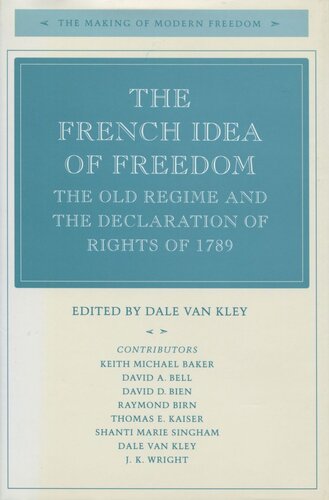

Most ebook files are in PDF format, so you can easily read them using various software such as Foxit Reader or directly on the Google Chrome browser.
Some ebook files are released by publishers in other formats such as .awz, .mobi, .epub, .fb2, etc. You may need to install specific software to read these formats on mobile/PC, such as Calibre.
Please read the tutorial at this link: https://ebookbell.com/faq
We offer FREE conversion to the popular formats you request; however, this may take some time. Therefore, right after payment, please email us, and we will try to provide the service as quickly as possible.
For some exceptional file formats or broken links (if any), please refrain from opening any disputes. Instead, email us first, and we will try to assist within a maximum of 6 hours.
EbookBell Team

4.3
68 reviews“The Declaration of the Rights of Man and the Citizen of 1789” is the French Revolution’s best known utterance. By 1789, to be sure, England looked proudly back to the Magna Carta, the Petition of Right, and a bill of rights, and even the young American Declaration of Independence and the individual states’ various declarations and bills of rights preceded the French Declaration. But the French deputies of the National Assembly tried hard, in the words of one of their number, not to receive lessons from others but rather “to give them” to the rest of the world, to proclaim not the rights of Frenchmen, but those “for all times and nations.” The chapters in this book treat mainly the origins of the Declaration in the political thought and practice of the preceding three centuries that Tocqueville designated the “Old Regime.” Among the topics covered are privileged corporations; the events of the three months preceding the Declaration; blacks, Jews, and women; the Assembly’s debates on the Declaration; the influence of sixteenth-century notions of sovereignty and the separation of powers; the rights of the accused in legal practices and political trials from 1716 to 1789; the natural rights to freedom of religion; and the monarchy’s “feudal” exploitation of the royal domain.